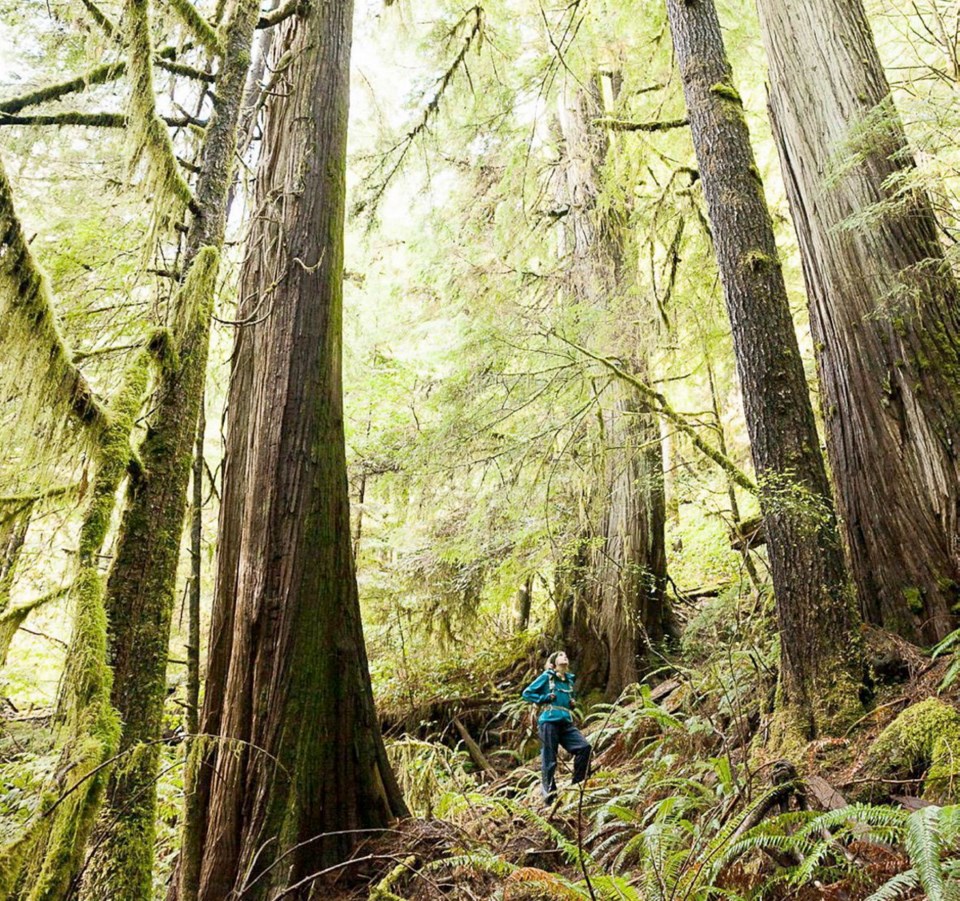A B.C. forest company’s plan to log centuries-old cedar trees in southern Vancouver Island’s Walbran Valley cuts into the heart of one of Canada’s most ecologically sensitive forests, says an environmental group.
Wilderness Committee spokesman Torrance Coste said that forest company Teal Jones is courting conflict with environmental groups in its bid to harvest almost 500 hectares of old-growth forest in eight land parcels.
The Walbran Valley’s old-growth forest near Lake Cowichan, about 100 kilometres northwest of Victoria, has been the site of past blockades and arrests over logging.
“We don’t want to see that happen again,” Coste said on Monday. “It’s 2015 — we shouldn’t be having to change logging policy by blockading roads anymore. We want to stop that far before that stage.”
The eight proposed harvest areas surround a protected area in Carmanah Walbran Provincial Park, known as the Castle Grove, which holds an untouched stand of cedar trees, he said.
“[Teal Jones has] access to vast stands of forests that they could manage in a sustainable way,” said Coste. “They’ve chosen to move into the heart of one of the most sensitive old-growth areas left in Canada. They are not going to be able to get away with that.”
He said the company has a tree-farm licence on southern Vancouver Island giving it access to almost 100,000 hectares of Crown land, but Teal Jones has chosen to focus on the eight small, valuable parcels of forest.
“This is worth far more as a cultural and tourism resource than it is as standing timber, but not to this company,” said Coste. “This is their latest, most grievous move and it really crosses the line in the sand for us.”
Coste said Teal Jones has been marking zones where it wants to cut, and he called on the B.C. government to deny the company permits to cut the trees.
“We’re asking them to stay out of 0.5 per cent of the land they have access to,” he said. “They have 20 other areas to harvest that aren’t going to court the level of controversy, the level of conflict, that moving into the central Walbran will.”
A Teal Jones official said the company was consulting with its officials before making a statement.
The Forests, Lands and Natural Resource Operations Ministry said in a statement that Teal Jones is within its legal rights to log in the area the Wilderness Committee is expressing concerns over.
The statement said Teal Jones has a government-approved forest stewardship plan in place.
The B.C. government established the 16,000-hectare Carmanah Walbran Provincial Park in 1991, but pristine forests close to the park were not protected.
The ministry statement said Carmanah Walbran Provincial Park protects many old-growth groves, including some more than 800 years old.



